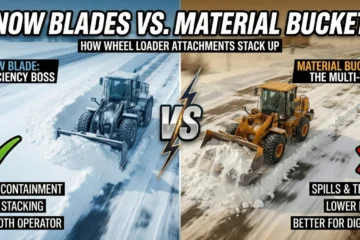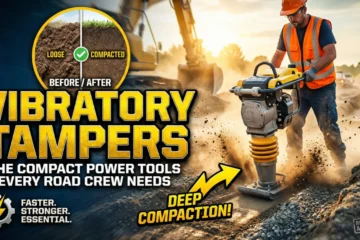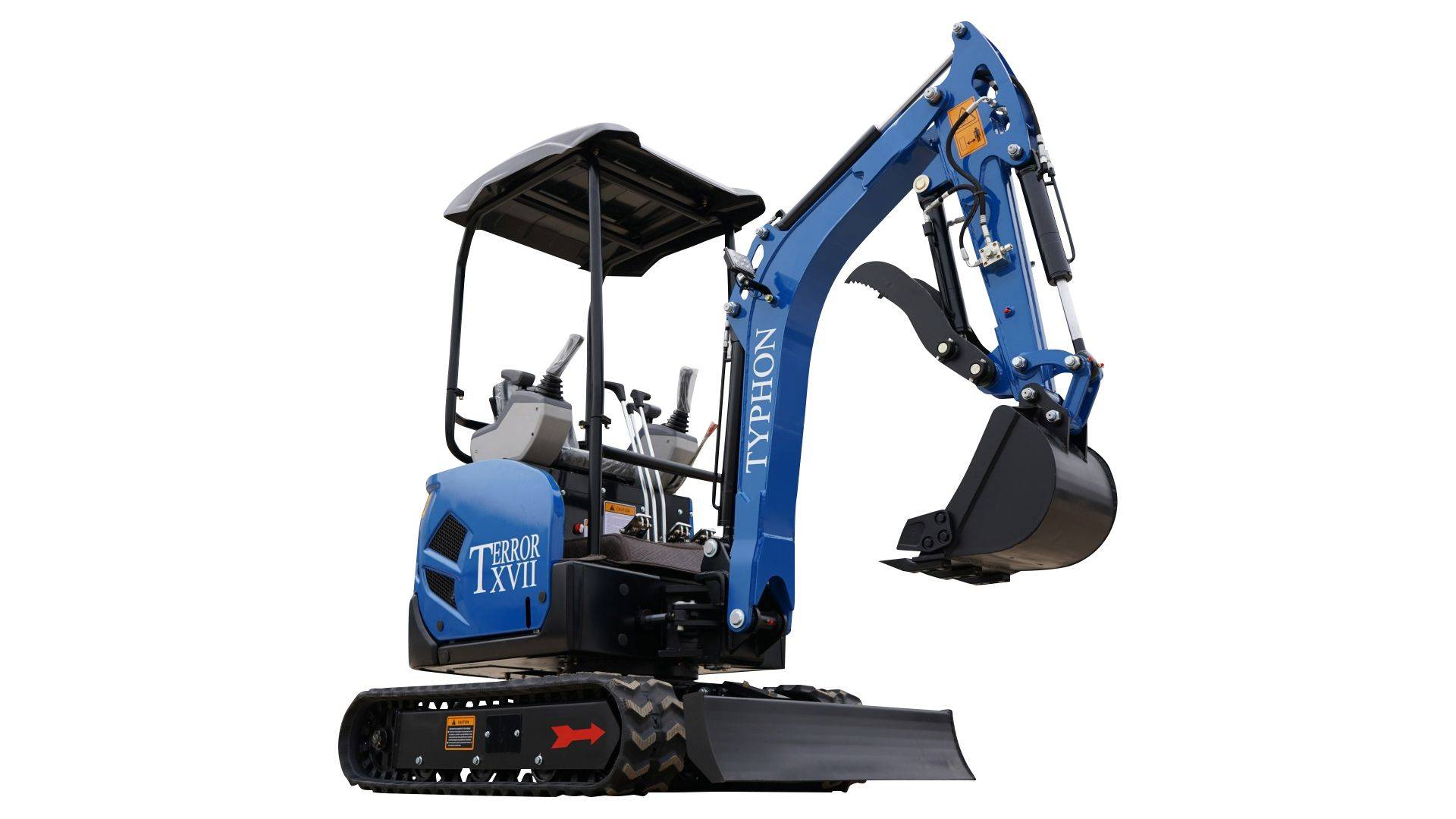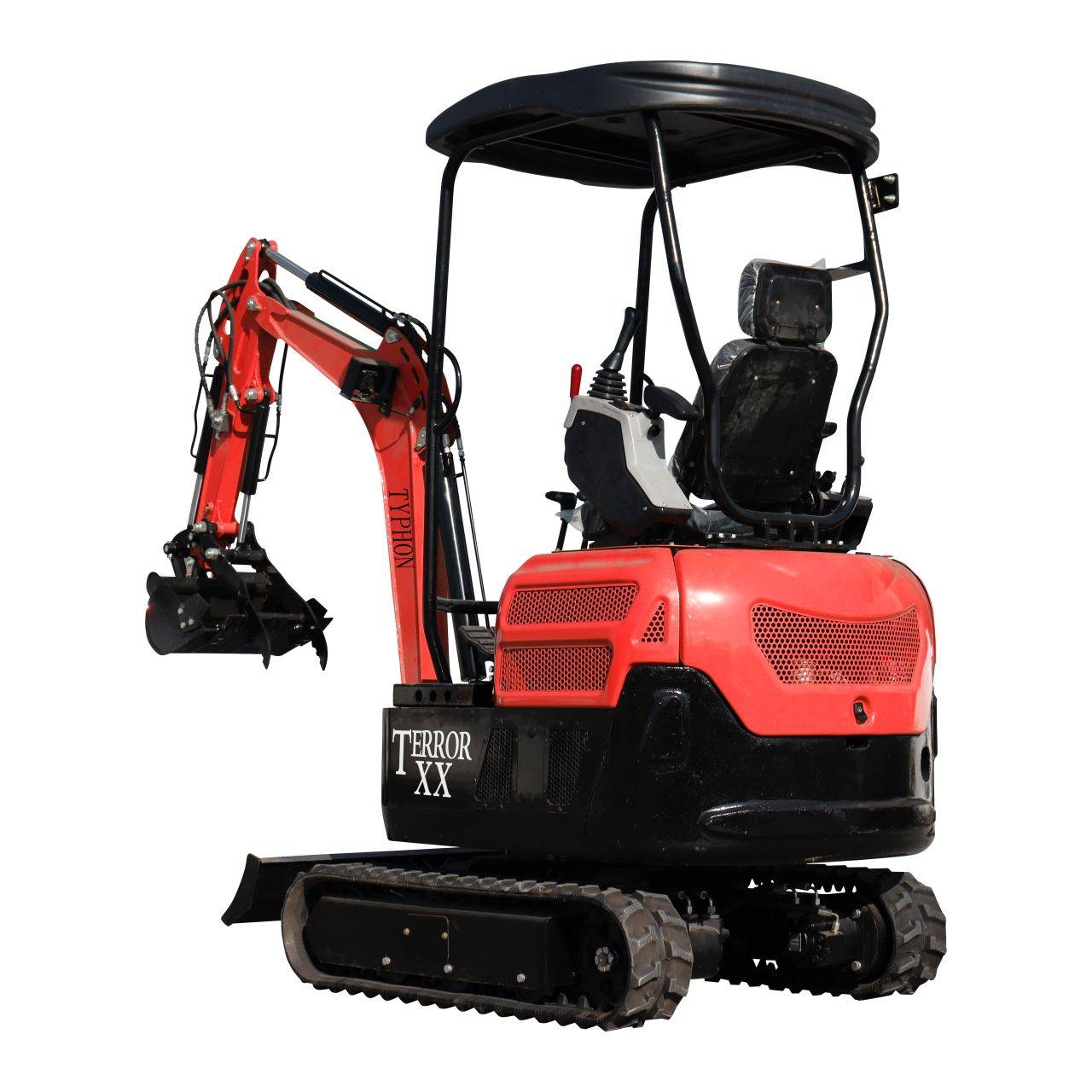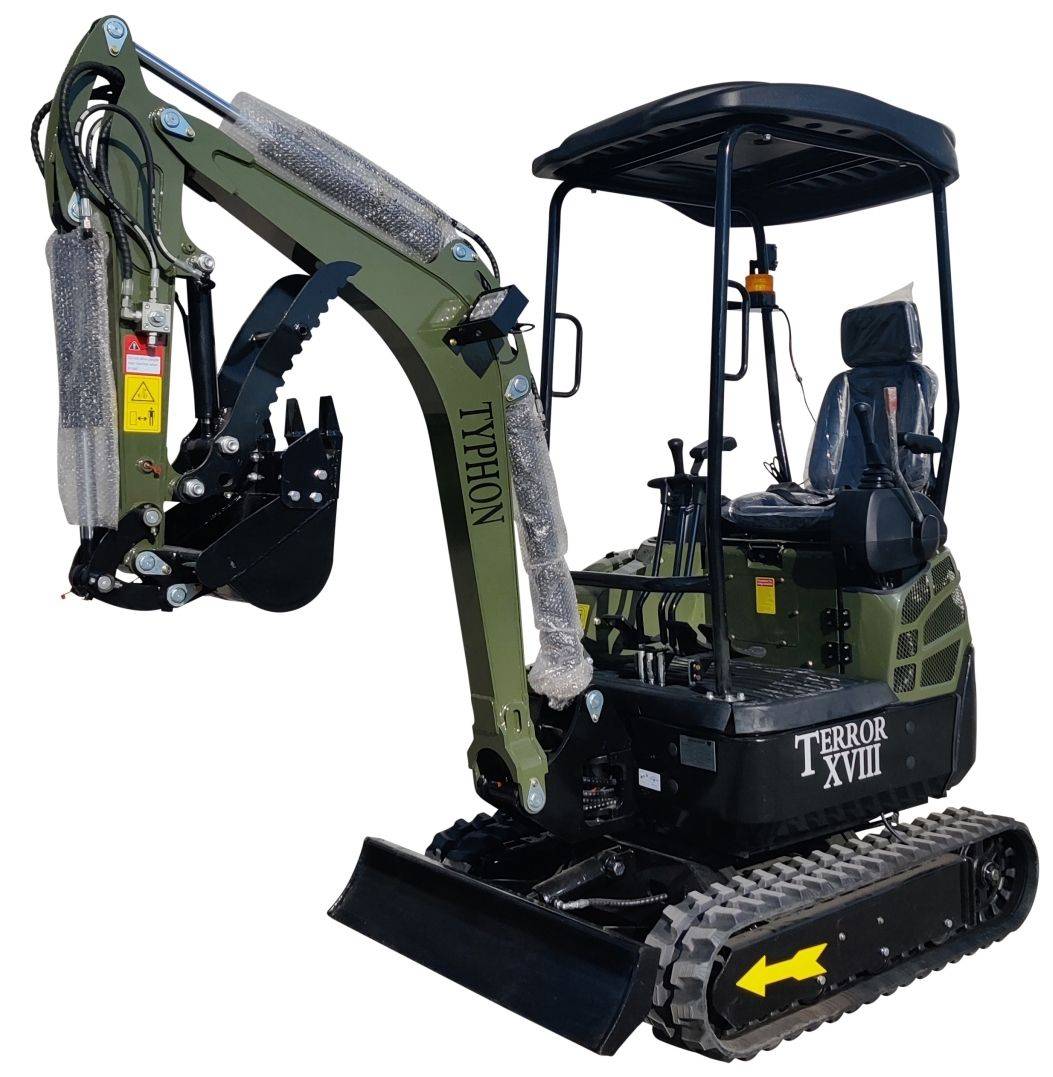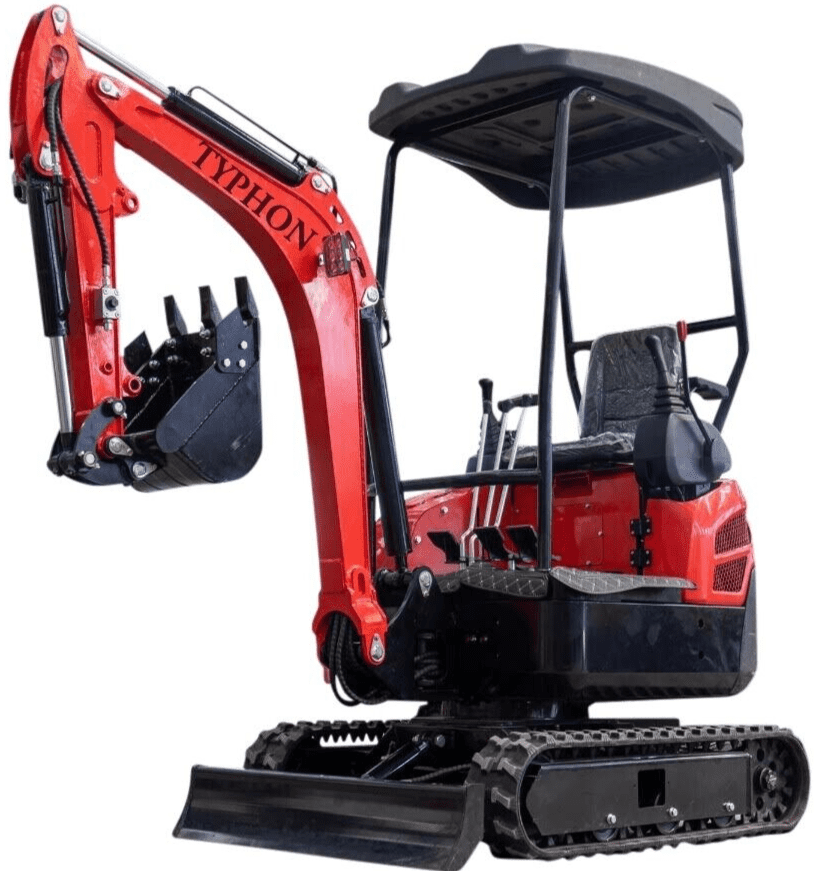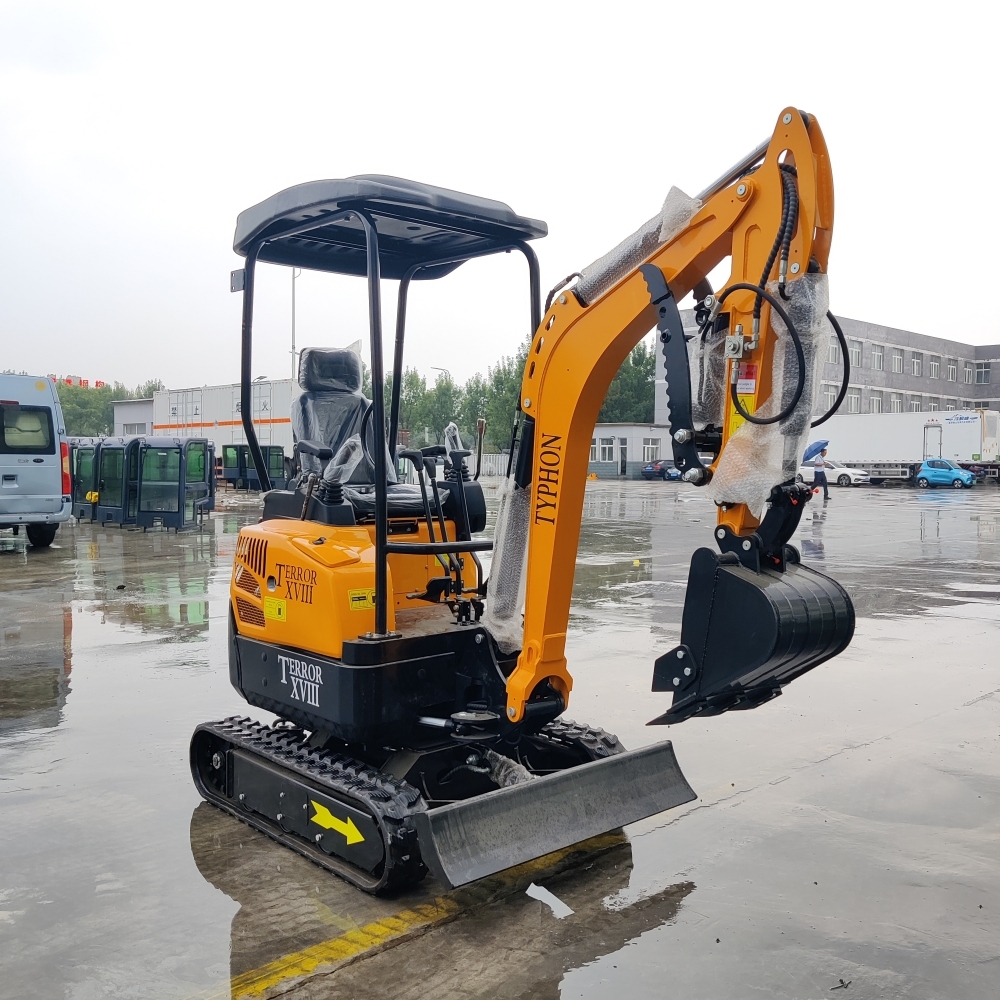
10 Mini Excavator Uses You Didn’t Know About
Mini excavator uses are more flexible than you might have realized, though. Though they are modest in stature, these little devices have great power in finishing a broad spectrum of chores. Think twice if you believed mini excavators were only helpful for excavating limited areas or trench building. Ten unexpected applications for small excavators—that you most likely never knew about—will be discussed in this post.
From demolition to landscaping tasks, these strong vehicles can do it all. Mini excavators might be the solution you have been looking for, whether your project is building and you need flexible tools or you are a homeowner wanting to change your garden. Come explore with us the less known features of micro excavators and learn how they could streamline your projects and increase output. The range of jobs small excavators can easily do will astound you.
So relax, get a sip of coffee, and let’s explore the realm of little excavator applications that will surprise you.
Common uses of mini excavators
Renowned for their adaptability and mobility, mini excavators are a mainstay on job sites in many different sectors. Digging trenches is one of the mini excavators most often used applications. For installing utility lines, drainage systems, or irrigation, its small footprint lets operators reach confined areas where bigger excavators cannot fit. Designed to fit the particular needs of the current project, a tiny excavator can dig trenches of varied depths and widths with the correct attachment. Both contractors and do-it-yourselfers would find great value in this accuracy and versatility, as they save time and labor expenses.
Mini excavators also shine in grading and leveling chores. Whether you’re gardening or building a site, your ability to provide a level, smooth surface is really vital. Mini excavators can effectively level asphalt, gravel, or dirt using a grading bucket or laser grading attachments, therefore guaranteeing a final result that satisfies professional criteria. Their agile design lets operators easily make accurate cuts and fill in low spots, therefore producing a clean and pleasing surface.
Finally, landscaping uses small excavators really often. These vehicles simplify the landscaping process, from moving dirt and mulch to excavating holes for plants and bushes. They can also include specific attachments for post-hole digging or buckets for transferring big volumes of dirt. Mini excavators therefore not only improve efficiency but also help landscape designers and homeowners to more precisely and easily realize their ideas.
Construction and landscaping applications
Mini excavators are used in the building sector for a variety of purposes outside of excavating. Their capacity to level land, remove trash, and dig foundations makes them very vital for site preparation. On home building projects, where space is sometimes constrained and accuracy is absolutely vital, this adaptability is very helpful. Because they can negotiate small paths, mini excavators are ideal for urban settings where bigger equipment would find difficulty.
Because they are so versatile, landscaping projects also mostly depend on small excavators. They may help install hardscapes, including patios and retaining walls, in addition to excavate and shift ground. Mini excavators can compress dirt, move large stones, and even do complex grading chores required for visually attractive landscapes with the suitable attachments. Without sacrificing quality, this skill lets landscape experts do tasks more swiftly and effectively.
Mini excavators may also help to install water features, including fountains and ponds. Being able to dig particular forms and depths allows landscapers to build unique designs that exactly complement their ideas. Using a small excavator allows homeowners and experts to reach a degree of precision and customization not possible with just hand effort. In landscaping projects, this efficiency finally produces very remarkable effects.
Mini excavators for agricultural purposes
Another area where small excavators flourish is agriculture, mostly for their adaptability and efficiency. From land preparation to maintenance, farmers and other agricultural workers sometimes need machines capable of doing several jobs. Digging irrigation ditches—which are necessary for efficient water management in agricultural operations—is especially helpful with small excavators. Their small scale enables them to negotiate rows of crops without harming the plants, therefore guaranteeing the continuous agricultural operation.

Apart from irrigation, small excavators also help in soil development. By breaking up compacted soil, they help farmers aerate and prepare ground for use. Mini excavators can efficiently remove soil by employing specialist attachments like tillers and rippers, therefore encouraging greater root growth and finally resulting in higher crop yields. This feature not only increases output but also lessens the physical effort farmers would otherwise have to do for these chores.
Moreover, sustaining farm infrastructure depends critically on small excavators. With these flexible tools, one may complete chores including cleaning trash from paths, excavating post holes for fences, and even grading ground for storage spaces. Their capacity for several purposes allows farmers to make investments in one piece of equipment that satisfies several demands, therefore saving time and money and improving the general effectiveness of their operations.
Mini excavators in the utility industry
Mini excavators are absolutely essential in the utility industry, as they can do exact and quick work in limited areas. Maintaining and building infrastructure, including water, gas, and electrical connections, in metropolitan settings is a difficulty for utility providers, most of which mini excavators provide faster and more effective installations by digging trenches for these utilities with the least disturbance to nearby regions. Urban utility projects would find them perfect as their tiny size guarantees their ability to negotiate traffic, landscaping, and current buildings.
Mini excavators also include specific attachments that improve their usability for utility jobs. For example, asphalt or concrete can be broken with hydraulic breakers, therefore facilitating access to underground utility wires. This capacity not only accelerates the process but also lowers the possibility of harming already in use infrastructure. Mini excavators are therefore absolutely necessary for utility firms trying to minimize service interruptions to consumers and offer consistent operation.
Mini excavators are also frequently used for maintenance chores like broken utility line repairs or replacements. Their precise digging allows workers to access particular regions without having to remove huge portions of ground, therefore maintaining the integrity of the nearby surroundings. This efficiency is especially crucial in highly crowded regions where reducing disturbance is the main focus.
Mini excavators for demolition work
Mini excavators provide a variety of benefits for demolition that bigger equipment cannot equal. Their small form lets them run in limited areas, which makes them perfect for projects in metropolitan environments or residential demolitions. Mini excavators can remarkably quickly complete jobs ranging from demolition of existing buildings to site preparation for new development to clearance of trash. Their capacity to negotiate tight turns and negotiate hurdles guarantees that demolition crews can operate safely and efficiently.
Using micro excavators for demolition has one of the advantages in terms of attachment flexibility. Easily switching between buckets, hydraulic hammers, and grapples lets operators fit various demolition jobs. For concrete walls, for example, a hydraulic hammer attachment can be utilized; a grapple can help to lift and move large objects. This adaptability not only accelerates the demolition process but also improves on-site safety as operators may use the suitable instruments for any project.
Moreover, little excavators help to cut waste in building projects. Their accuracy enables more focused material removal, therefore saving important resources for recycle-able or reuse. This helps the environment as well as lower contractor disposal expenses. Using a tiny excavator helps demolition crews run more sustainably while still effectively reaching project goals.
Mini excavators in the forestry sector
Mini excavators are becoming very important in the forestry industry as they offer a flexible option for different jobs. Many times used for land clearance, they help forestry experts eradicate undesired plants and prepare the ground for future development or expansion. Mini excavators are a more ecologically friendly choice than bigger machines, as their small size lets them negotiate through deep forests without seriously harming the surrounding ecology.
Mini excavators can also be equipped with specifically designed attachments for stump grinding and tree removal. For small to medium-sized trees, for example, a tree shear attachment may cut them very successfully; a stump grinder can remove tree stumps really quickly. Reforestation operations or when clearing land for agricultural purposes especially benefit from this capacity. Using small excavators, experts in forestry can do these jobs precisely and with the least effect on the surroundings.
Mini excavators can greatly help to create and preserve access routes in wooded regions. Mini excavators can build and maintain dependable access paths needed for forestry operations, therefore enabling heavy machines to pass the ground securely. Their capacity to operate in difficult environments while preserving agility makes them a necessary instrument for forestry activities, therefore boosting output and lowering running time.
Mini excavators for residential projects
Mini excavators offer a perfect answer for homeowners wishing to handle gardening or repair work. For jobs like excavation for pools, patios, or flower beds—where accuracy and accessibility are crucial—they are very helpful. Popular for do-it-yourself tasks, a tiny excavator allows homeowners to save time and save labor expenses by substituting it for depending just on hand work. These machines can effectively excavate, level, and move materials with the correct attachments, turning outside areas into lovely sanctuaries from backyards and beyond.
Apart from gardening, micro excavators find application in small-scale building projects such as drainage system installation or retaining wall building. Their maneuverability in confined locations allows homeowners to make good use of them in domestic settings without upsetting surrounding buildings or landscape. This adaptability lets homeowners be more creative in home remodeling initiatives and helps them to get the intended outcomes with the least effort.
Moreover, house maintenance chores depend much on small excavators. From removing trash following major storms to excavating for foundation repairs, these vehicles can meet a range of tasks that homeowners might have. Their simplicity and effectiveness let homeowners handle these chores without professional assistance, therefore enabling them to take charge of their property care.
Mini excavators in the mining industry
Particularly in smaller-scale operations, micro excavators are useful instruments for many purposes in the mining sector. Their small size lets them negotiate difficult terrain and operate in limited areas, which qualifies for surface and underground mining activities. For jobs like excavation, material handling, and site preparation—mini excavators offer a versatile answer for mining businesses trying to maximize their operations.
Mini excavators are notably used in mining for overburden removal. To reveal the minerals under, this procedure removes the top layer of rock or soil. Mini excavators can quickly access priceless resources by effectively removing this waste. Their capacity to work in restricted access regions and tight passageways guarantees that they can efficiently support mining operations without seriously interfering with the surroundings.
Mini excavators are also rather common for moving goods around mining sites. Their adaptability lets them load and relocate different materials—including minerals, rocks, and soil—to specific sites for more work. This capacity lowers the demand for several kinds of equipment, therefore improving the general effectiveness of mining activities. Mini excavators let mining businesses simplify their operations and raise output by including them in their routine.
Conclusion and final thoughts
Ultimately, with uses in many different sectors, compact excavators are significantly more flexible than most people would think. From gardening and building to agricultural and utility work, these little vehicles have shown value in a variety of chores. Professionals and homeowners alike will find them a great help because of their capacity to negotiate confined areas, operate different tasks with specific attachments, and increase efficiency.
Mini excavators may help with everything from grading ground and building trenches to completing exact demolition and forestry chores, as this article has discussed. Their flexibility lets one be creative in the way a project is carried out, whether it is a modest house repair or a major one. Mini excavators are obviously going to be quite important in determining how we handle different jobs in construction, agriculture, and other fields, as their increasing popularity shows.
Now is the ideal time to investigate the options if you are thinking of a small excavator for your next job. Whether you’re a homeowner preparing a do-it-yourself project or a contractor trying to improve your equipment line-up, these tools may streamline your tasks and improve the caliber of your work. With the correct mini excavator and accessories, you may confidently complete a variety of jobs, realizing your ideas.


